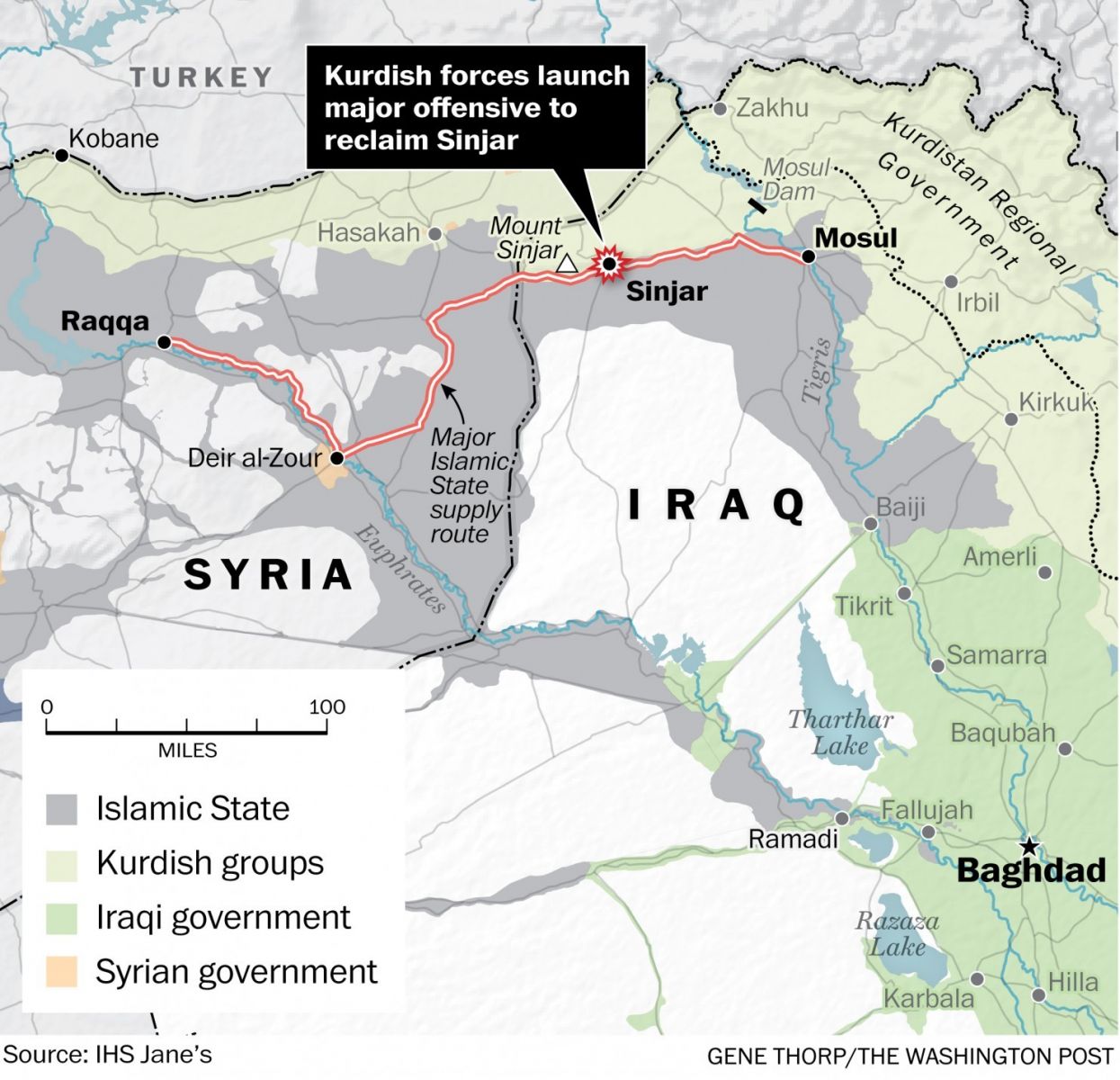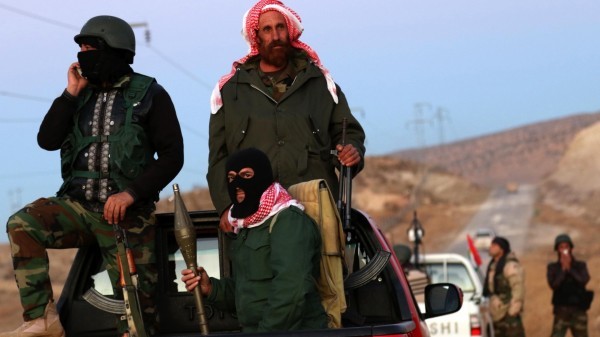
KURDISH FORCES RAISE FLAG OVER SINJAR AS ISLAMIC STATE CONTROL CRUMBLES
Loveday Morris
SINJAR, Iraq — Kurdish forces entered the Iraqi town of Sinjar on Friday, raising their flag over several key buildings in a rapid offensive against Islamic State militants following heavy U.S.-led airstrikes.
The assault — on the second day of a major offensive — appeared to face little resistance, and Kurdish commanders said many militants had fled overnight. Occasional explosions broke out as Kurdish forces cleared booby-trapped buildings and streets.
The Kurdish flag could be seen flying over the town’s towering grain silo after special forces soldiers launched a morning assault. However, the sound of heavy gunfire still rang out as the militants resisted.
[Kurdish forces, backed by U.S. airstrikes, launch offensive in Iraq]
Sinjar straddles the road between Raqqa, the Islamic State’s de facto capital in Syria, and its Iraqi stronghold of Mosul, and recapturing it prevents the militants moving fighters, weapons and supplies between their two power bases. The town is not one of the Islamic State’s most important strongholds, but the highway that runs through it is arguably the militant group’s most crucial supply route.
The fall of the city last year devastated Sinjar’s community of minority Yazidis, prompting the United States to launch an air campaign in Iraq as tens of thousands of Yazidis became trapped on nearby Mount Sinjar, a mountain that stretches across the northern side of the town.
Some 7,500 Kurdish fighters, known as peshmerga, are involved in the battle to oust the small but fierce contingent of Islamic State militants in Sinjar, in addition to Yazidis fighting independently and other militia groups.
“A lot of them fled last night,” said Lt. Adnan Ismail Yasin, manning a sandbagged position on the eastern side of the city. “When some were trying to get out, airstrikes destroyed them.”
[Horrifying tales of sexual slavery for Yazidis who could not flee]
The Kurdish Democratic Party headquarters was also seized, he said, adding that there were a “few” militants left. But the heavy gunfire ringing out as he spoke suggested heavier resistance.
Highway 47 runs from the militant-ruled city of Mosul in northern Iraq to the north-central Syrian city of Raqqa, which the Islamic State has declared the capital of its self-proclaimed caliphate. The Sunni extremists use the road to transport fighters, weapons, cash and oil between their two largest cities, which are about 300 miles apart. The U.S. military says the Islamic State sells the oil on the black market to fund operations.
In Tunisia, Secretary of State John F. Kerry said coalition forces “are absolutely confident that, over the next days, Sinjar will be liberated.”


